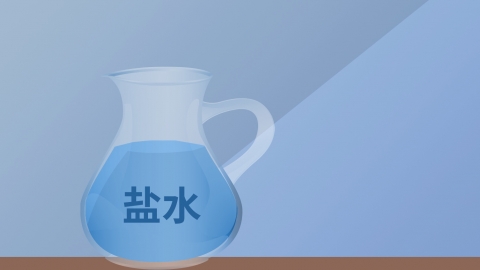Can children drink salt water when they have a fever?
Generally speaking, whether a child can drink salt water when having a fever should be determined based on the need for electrolyte replacement and the nature of the fluid. The specific analysis is as follows:

If a child experiences excessive sweating, vomiting, or diarrhea along with fever, the body may lose electrolytes such as sodium and chloride. Symptoms like dry mouth, reduced urine output, and listlessness may appear. In such cases, drinking a small amount of lightly salted water may be appropriate. Light salt water can replenish lost electrolytes, maintain the body's electrolyte balance, prevent worsening dehydration, and its mild formulation is easily absorbed by the body. This helps alleviate discomfort caused by electrolyte disturbances and provides foundational support for recovery.
If a child has a fever without significant sweating, vomiting, or diarrhea, and only presents with elevated body temperature without signs of dehydration such as dry mouth or reduced urine output, drinking salt water is not recommended. At this time, the loss of electrolytes is minimal, and additional salt intake may increase the metabolic burden on the kidneys. Moreover, the strong taste might discourage the child from drinking sufficient fluids, which could be detrimental to hydration. Drinking warm boiled water regularly is sufficient to meet the child's needs.
Note that the salt water given to children must be very dilute—just a small amount of salt added to 100 milliliters of warm water—to avoid gastrointestinal irritation or placing extra strain on the kidneys. It should be consumed in small amounts multiple times, while observing whether the child experiences discomfort such as bloating or nausea. If the fever persists or is accompanied by severe dehydration symptoms, timely medical attention should be sought rather than relying solely on salt water to alleviate the condition.




